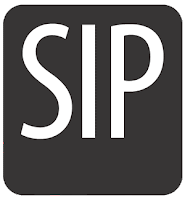It is even more evident now, that the good signs about Skype Openness we saw beginning last year are completely flushed now, probably due their eagerness of pursuing an IPO and new management.
Although, what they did not count is the bad impact in their own user base and public image effects of such blocks. It proves once more that companies should not rely on Skype as something solid to build product features. Not only that, according to Skype, third-party MUST not build product features based on their services.
Skype also claim they have an API. Really? Not exactly, they have a Client SDK/API. And why it matters, is that if a client or device want to make use of it, they need to have exclusive granted privileges for a black box piece of software to be embedded and shipped within your product. Yes, if you want to support Skype, you need to build your product on top of that, and also make sure the product is exclusively Skype friendly. If that wasn't enough they also say that they do not guarantee for how long the piece of software will be valid.
Skype wants to do what AOL did, trying to force their users to install their Software and only use their own Browser/Client to access Internet.
 The Bad.
The Bad.SIP is widely adopted worldwide specially among technical people, geeks and behind the curtains, even used as base landlines telephony like in Netherlands.
- The interoperability is something achievable theoretically, meaning that several different SIP Clients can talk to each other
- SIP release the Telecom from the "Dark Ages" to the "Modern Times", showing that Telephony could be done using IP and good software
- Vast majority of Communication equipments and platforms have support for it.
- It enabled the possibility to create huge portfolios of Value aggregated Services based on Legacy Telecom Centrals
- It is responsible for the cheap VoIP as we know it
- Most terminations that Skype buys, are provided via SIP
- Estimated numbers of SIP Providers worldwide is bigger than 50.000
- SIP Providers can sell termination minutes not only to end users, but also to other Providers
- SIP Protocol is not as practical and simple as it should be by 2010
- SIP is not extensible, the current attempt of extending it (3GPP) is failing badly, taking more than 10 years of pure specifications, without any success to reach mass market. The current result is a HUGE stack of workarounds badly described and full of contradictions
- SIP Calling is great and almost straight-forward, but Messaging, Presence, Contacts and Extended Services are way too complex for current Market Status
- SIP is always backed by big corporations that tries to mystify it, trying as much as possible to postpone the life-cycle of the protocol.
- The current Market needs and demands extra features than only Calling. There is no such thing as a mass market SIP based service with extensive features like: Presence, Contacts, Whiteboard, Video, File Sharing etc.
- Apple Facetime is a frustrated attempt to use SIP for extended Video Call service ( Why frustrated? A service that works based on "trial-error" and does not have interoperability support in 2010, is a failure by default ). Apple end up implementing a half-SIP, half-XMPP, half-STUN solution. Which is completely closed for interoperability. It claims to implement it ALL, and supports NONE.
- The complexity of the protocol makes it hard and restricted to highly specialized developers, which have their jobs lifetime guaranteed, but decreases the potential mass adoption of the protocol.
 The Ugly.
The Ugly.
Jingle in the other hand is based on an extensive protocol XMPP, which has incredibly easy to read and implement specifications. Besides having default support for Contact List, Presence, Messaging, Gateways and all sorts of extensions: http://xmpp.org/extensions/
Google Talk, Facebook, Nimbuzz and thousands of companies worldwide have their Messaging and Presence services based on XMPP.
Jingle is heavily discussed in this blog, so no need to go in depth:
- It is extensible, huge evolution Potential
- It is simple, easy to implement
- It is portable for Mobile Devices
- It is probably what soon Facebook will use for their Calling Services
- Has standard support for distributed Nodes: Jingle Nodes

The Good.









and yet I wasn't able to make one simple call using jingle... :(
ReplyDeleteDon't get me wrong - I would love to do so, but the adoption of it is veeery poor....
@Anonymous Did you ever try to use Nimbuzz or GTalk? Both uses Jingle, and both inter-operates with SIP via SIP Gateways.
ReplyDeleteI'm sure Nimbuzz have the best Mobile experience and GTalk the best browser based experience.
above post from "Jingles" -- notice the hyperlink ther!! - is a spam. Please delete this.
ReplyDeleteWell I don't think skype people are doing some genuine work right now. Instead of focusing on their service quality and security, they are busy in other jobs. I would advise them to focus on their security.
ReplyDeleteIt's fun to see people do such comparisons.
ReplyDeleteThe same has been done in the past between H.323 and SIP, showing SIP as the superior one.
The thing is this - when you get multiple vendors trying to implement a standard (=SIP), it is going to cause a lot of IOT issues and hardships.
If you are the only vendor (=Jingle) then life is easy - it just works.
I don't pretend that SIP is a good solution, but I wouldn't bet everything on our industry moving to XMPP and seeing the light as a result of it.